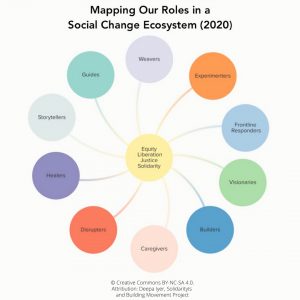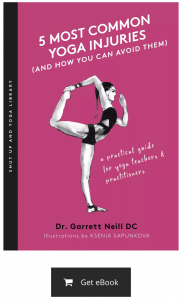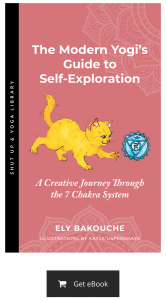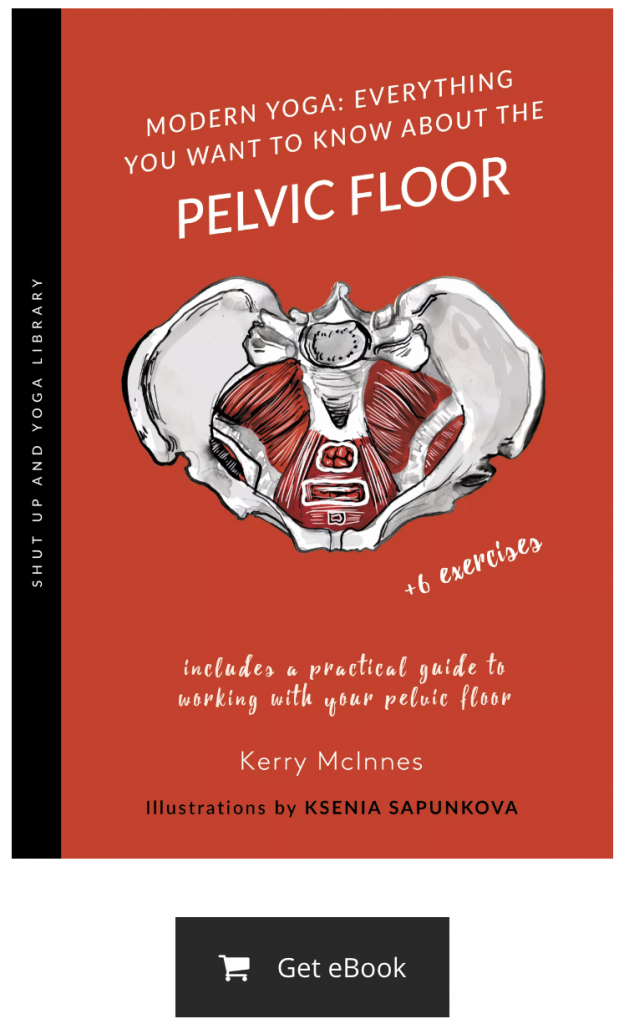We were recently invited to be on a podcast where one of the interviewers shared that they recently found out yoga comes from Mother India. It wasn’t as though the interviewer lived under a rock, but nothing about the yoga they saw suggested to them that it was anything but a modern fitness class at best, and a white woman’s sport at worst.
We share this example because the yoga and wellness industry is a microcosm of the neocolonial reality we live in. The commodification of yoga did not happen overnight, but has been happening for decades. The yoga we have inherited in the west is a product of colonial trauma and we are causing more harm to marginalized communities when we believe light and love is the answer to the systemic oppression that centres white people as the leaders and experts of Indian spiritual teachings.
Toxic positivity is an inappropriate response to the injustices we face. “Light and love” is exhausting to deconstruct, sort of like explaining why feminists are not angry man-haters to incels.
We exist in a society where very real systems of injustice actively prevent some of us from living with abundance and power due to the colour of our skin. The truth is, we are all complicit in harm: we are either taking steps to dismantle the colonizer worldview that underpins society, or we are a part of the problem. There is something wrong with our approach to yoga when we do not think we are causing harm by commodifying spirituality. There is no reverence to sacred concepts when we think nothing of teaching them in a shallow manner in order to sell a product or jump on the trend bandwagon.
This isn’t to say we cannot teach until we know everything or that we cannot be innovative, but it shouldn’t be normal to sell workshops about concepts we’ve only Googled or think cat yoga is harmless fun. This is why yoga in the west has become a joke to cynics who associate it with acrobatics, leggings, and self-help jargon. We are a long way from what yoga is truly about.
Our practice of yoga allows us to experience the radical truth that we are all equal. It is a gateway to access our higher self. We all have an instinctive desire to experience a deeper connection to the world around us, and to ultimately merge with the divine. If we view yoga as unity, yoga is about social justice. It is the work of amplifying Queer, Trans, Black and Indigenous people of colour. It is the work of sharing our power by re-allocating the resources that we hold as a result of our privileges with the people who need it the most in our community. Accessing our higher self is really a conversation, in some ways, about authentic living and how we want to move in the world.
Authentic living is knowing who we are and being comfortable in our skin. That can only happen when we cultivate our self-inquiry, which comes from sitting with discomfort, embracing all parts of ourselves, and honouring our intricacies with compassion. Self-inquiry is hard work because it is unpacking our worldview. It can be uncomfortable for us to see the colonizer that lives within each of us. It is only when we become aware of our complexes and shadows that we can act from our higher selves.
As yoga and meditation teachers, we do not believe light and love is the answer to collective healing. Light and love is often used as an argument to spiritually bypass the socio-economic issues facing marginalized communities and is the spiritual counterpart to colour-blindness. The logic of both flawed concepts is that if we don’t acknowledge something, it doesn’t exist, and the problem is solved. Unfortunately, we do not live in a utopia, and we sure as heck don’t live in a post-racial society. Pretending systemic oppression doesn’t exist simply allows the oppression to continue.
Anyone that calls themselves a yoga teacher or a yoga student must honestly ask themselves if their yoga practice is truly making them into a self-inquiring person who stays accountable to and cares for their community. Is yoga radicalizing them to be a co-conspirator for collective liberation, or is it simply another societal mask that they are wearing to signal an ego-driven consumerist personality?
Winter is a yin season where we naturally go inward. It is a season of potential and a natural time to plant seeds of intention, to nurture and tend to them so that they have the chance to bloom in the spring. Below, we will share how we can be authentic in how we show up as co-conspirators of collective liberation and plant seeds to create impactful change.
View this post on Instagram
1. Talk to the people in your life.
It starts in your neck of the woods. You are doing the work of a co-conspirator when you are having honest conversations about race, colonialism, cultural appropriation, tokenization, and compensation with your yoga community. This could mean asking your friends if they practice with online teachers who are not white womxn, or if they practice with any South Asian womxn teachers. This could mean asking yoga teachers why they are not using Sanskrit. This could mean asking studio owners about how they are creating a space that centres the needs of not just able-bodied people, and if yoga teachers of color are compensated at either the same or a higher rate as their white counterparts.
There is this misconception that change is big and cataclysmic—that we have to go somewhere else to make a difference. But you are already making an impact in the community that you live in by the type of conversations you are having with your networks whether that is your yoga group, friend group, work group, or neighbours. Normalizing discussions about race, colonialism, and power is a small but profound act, because it is about getting comfortable using your voice.
It is hard to spend time with people who do not share our values. It can be even harder to bring up these things when we do know them and enjoy spending time with them. How many so-called progressive people do you know in your life that are dating people with reactionary politics?
White people, talk to your white friends and family members. Hold space for them, because otherwise this burden is shifted to BIPOC folks who do not have the time or energy to explain their humanity. Perhaps it’s easier to make a scapegoat out of our racist friend than it is to discover what we see in them that is reflecting off us. It speaks to our fear of the shadow self and what will come out of us. What we should really fear is not what comes out, but what happens when we keep it all in.
2. Stay accountable for your mistakes.
We tend to talk about the shadow self as the parts of ourselves that are bad but that is not necessarily so, and it can be harmful to think of it as such.
What we repress, ignore, or deny is not simply the chaotic impulses within us, but also what we believe will not be rewarded or safe to reveal, such as ignorance. It’s natural to be scared about saying the wrong thing, but there is nothing wrong with being wrong. We have all been drinking the colonial Kool-Aid and internalized the colonizer within. We have been socially conditioned to extract resources from the land without ever giving back, to equate our worth to our productivity, and to believe white male figures are the measuring stick for authority figures, credible teachers, and leaders. There is no question that our worldview will be biased towards capitalism, anti-blackness, and the patriarchy. This will show up in situations and conversations when we are least aware of it, because we are rarely conscious of the evidence of our privilege.
Mistakes will happen, but it is what you choose to do after you make a mistake and have been called out for it that will prove if you are performing or being an authentic co-conspirator.
As children, we had an exploratory relationship with ignorance—it was not an impediment but an invitation to be curious and grow. As adults, we remain tight-fisted about our ignorance, hiding it away like a secret.
Yoga teachers often say that they are a lifelong student of the practice. We should apply this attitude in parallel to our work as co-conspirators. How can we remain humble and committed to truly listening to what another person has to say, even if it hurts our ego? How can we stay gracious in the moment we feel defensive? We can stay open to curiosity and growth, to giving grace to ourselves along our human journeys.
3. You have your own role to play in social change.
We need all hands on deck and the good news is that there is no one way to be a co-conspirator. We all have our unique parts to play in how we are creating impactful change in our communities. For us, creating the Womxn of Color Summit, a safe and inclusionary space for womxn and non-binary people of color to share stories and knowledge, is how we are doing our part to amplify and support the words and work of inspirational womxn of color. It is how we centre our community to be seen and heard on their journey of self love, empowerment, and soul care. Our work with Womxn of Color Summit is truly a labour of love.
You don’t have to start a business and you don’t have to be on social media. What excites you, and how can you play to your strengths? Whether you are more artistically inclined, a natural caregiver, or a bridge to bring people together, there are many ways for us to show up.

4. Be cautious of complacency
If the storming of the U.S. Capitol has proved anything, it’s that when there is change, there is resistance, and where there is progress, there is the danger of complacency. This is truly an exciting time in which we are living, and it’s so appropriate that we are in the Age of Aquarius. We predict this shift in consciousness will continue to shape how we relate to injustice on a systemic level, but that doesn’t mean we, as individuals, don’t have work to do to create new worlds that serve our collective liberation. With awareness comes the power to choose to live in freedom.
What will you choose?
The Womxn of Color Summit: The Art of Authentic Living, a virtual gathering for community healing and collective wellness for BIWoC, takes place February 23-28, 2021.
The Art of Authentic Living will be a week of honest, uplifting stories from some truly phenomenal BIWoC sharing their stories, obstacles, and paths to self-actualization. Living boldly and true to ourselves is an act of bravery and the path to our liberation. We will highlight BIWoC owning their power and pursuing their dreams despite it all.
Authentic living is knowing who you are and being comfortable in your skin. It is courageous and joyful to not have to pretend anymore and be true to our needs.
Join us for the second annual summit to learn from other brilliant and bold BIWoC where we explore exactly that – the art of authentic living. Purchase your Summit Pass. Donate to Womxn of Color Summit.
Edited by Ely Bakouche
Featured illustration by WOC Summit resident artist Farah Billah
Updated post-publication to replace the use of ‘tone-deaf’ by ‘inappropriate.’





